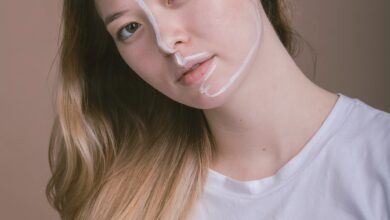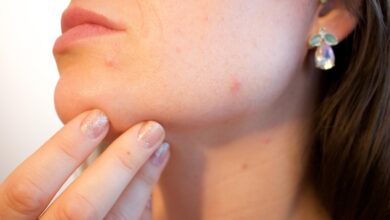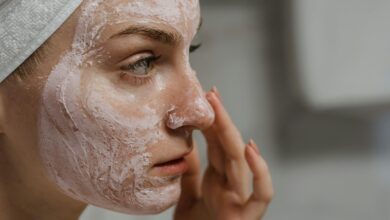Best Facial Cleanser for Aging Skin: A Complete Professional Guide

As skin matures, its needs change significantly. What worked in your twenties or thirties may no longer serve your skin in your forties, fifties, or beyond. Aging skin requires a more gentle, nourishing, and effective approach, especially when it comes to facial cleansing. With countless products on the market, finding the best facial cleanser for aging skin can be challenging. This comprehensive guide breaks down what to look for, what ingredients matter, and how to build a routine that truly supports mature skin.
Why Choosing the Right Cleanser for Aging Skin Matters
Cleansing is the first and most critical step in any skincare routine. For aging skin, a poor choice of cleanser can strip away natural oils, disrupt the skin barrier, and accelerate signs of aging such as dryness, dullness, and fine lines. Conversely, a well-formulated facial cleanser can help:
- Maintain moisture balance
- Protect against environmental stressors
- Support skin renewal
- Enhance the performance of other skincare products
Mature skin tends to be more delicate, thinner, and less elastic. Therefore, selecting a cleanser that meets its needs is not just recommended—it is essential.
Click on the link to know details about Acnes Gentle Cleanser: Clear Skin Starts Here
Common Signs of Aging Skin
Before exploring specific cleanser types, it helps to understand how aging manifests in the skin. While everyone ages differently, common signs include:
- Fine lines and wrinkles
- Loss of firmness and elasticity
- Dryness and dehydration
- Uneven tone and texture
- Thinning skin
- Increased sensitivity
The best facial cleanser for aging skin should address these challenges without causing irritation or stripping away essential lipids.
Key Features to Look for in a Facial Cleanser for Aging Skin
When shopping for a cleanser designed for mature skin, here are the most important qualities to look for:
1. Gentle, Non-Stripping Formulas
Harsh cleansers, especially those containing sulfates or high alcohol content, can damage the protective moisture barrier. A gentle cleanser with a neutral or slightly acidic pH helps maintain the skin’s natural balance.
2. Hydrating Ingredients
Aging skin tends to lose moisture more quickly. Look for ingredients like:
- Hyaluronic acid
- Glycerin
- Ceramides
- Panthenol
These components draw water into the skin and help prevent trans-epidermal water loss.
3. Antioxidant Support
Antioxidants such as Vitamin C, Vitamin E, and green tea extract combat oxidative stress caused by environmental factors like pollution and UV exposure. A cleanser with antioxidants can support overall skin vitality.
4. Free from Harsh Additives
Avoid cleansers that contain artificial fragrances, parabens, or sulfates, especially if your skin is sensitive or prone to redness.
5. Creamy or Lotion-Based Texture
Foaming cleansers can be drying. Cream or lotion-based cleansers are often better suited for aging skin due to their richer, more emollient base.

Types of Facial Cleansers Ideal for Aging Skin
Here’s a breakdown of the most effective types of facial cleansers for mature skin and how they perform:
1. Cream Cleansers
These are ideal for dry, aging skin. Cream cleansers offer a soft, emollient-rich texture that cleans without disrupting the skin’s moisture balance.
Best for: Dry, sensitive, or very mature skin
2. Oil Cleansers
Oil-based cleansers dissolve makeup and sebum without over-drying the skin. They are excellent as a first step in double cleansing.
Best for: Normal to dry aging skin, especially if you wear makeup or sunscreen
3. Gel-to-Milk Cleansers
These start as a gel and transform into a milky texture upon contact with water. They offer a deep clean without stripping natural oils.
Best for: Normal, combination, or sensitive aging skin
4. Micellar Water
Micellar water is a gentle option that lifts dirt and oil using micelle molecules. While not a deep cleanser, it’s great for a quick refresh.
Best for: Sensitive or reactive mature skin
Top Ingredients to Seek in Anti-Aging Cleansers
When scanning ingredient labels, the following ingredients signal a high-quality product for mature skin:
Hyaluronic Acid
Attracts and retains moisture to keep skin plump and hydrated.
Niacinamide (Vitamin B3)
Improves skin tone, reduces inflammation, and supports the skin barrier.
Peptides
Support collagen production and improve skin firmness.
Green Tea Extract
Provides antioxidant protection and soothes inflammation.
Lactic Acid
A mild exfoliant that hydrates while gently sloughing off dead skin cells.
Aloe Vera
Soothes, hydrates, and supports the healing of irritated or sensitive skin.
How to Use a Facial Cleanser for Aging Skin
A gentle, consistent cleansing routine enhances skin resilience and prepares it for serums, moisturizers, and treatments. Here’s a suggested approach:
Morning Routine:
- Splash face with lukewarm water.
- Use a small amount of gentle cream or gel cleanser.
- Massage in upward, circular motions for 30 seconds.
- Rinse and pat dry—never rub with a towel.
- Follow with hydrating toner, serum, moisturizer, and SPF.
Evening Routine:
- Start with an oil-based cleanser to remove sunscreen and makeup.
- Follow with a water-based cleanser if needed (double cleansing).
- Pat dry and apply nourishing products (retinol, night cream, etc.).
Common Mistakes to Avoid
Even with the right cleanser, missteps can undermine your skincare goals. Avoid these pitfalls:
- Over-cleansing: Washing too frequently can strip natural oils.
- Using hot water: It can break capillaries and dry out the skin.
- Scrubbing harshly: Friction can accelerate collagen breakdown.
- Skipping moisturizer after cleansing: Always follow with hydration.
Best Practices for Long-Term Results
To support your cleanser and achieve noticeable skin improvements:
- Stay hydrated throughout the day.
- Use SPF daily to prevent sun-induced aging.
- Incorporate gentle exfoliation 1–2 times per week.
- Use antioxidant-rich serums alongside your cleanser.
Cleansing is foundational, but true anti-aging results come from a comprehensive, consistent regimen.
Conclusion
The journey to finding the best facial cleanser for aging skin starts with understanding your skin’s evolving needs. A well-formulated cleanser not only removes impurities but also preserves moisture, supports elasticity, and prepares the skin for rejuvenating treatments. As skin matures, every product in your regimen must work to protect, nourish, and strengthen.
Choose a cleanser that is gentle, hydrating, and free from irritants. With the right product and proper usage, your skin can maintain its glow, softness, and resilience through every stage of life.
Frequently Asked Questions (FAQs)
Q1: How often should I cleanse my face if I have aging skin?
Twice a day—morning and evening—is sufficient. Over-cleansing can lead to dryness and irritation.
Q2: Are foaming cleansers bad for mature skin?
Yes, many foaming cleansers can strip natural oils, making them unsuitable for aging or dry skin. Creamy or oil-based cleansers are better options.
Q3: Can I use the same cleanser year-round?
Skin needs can change with the seasons. You might prefer a richer cleanser in winter and a lighter one in summer.
Q4: Should I double cleanse if I don’t wear makeup?
Double cleansing isn’t mandatory without makeup, but it can help remove sunscreen and pollution more effectively.
Q5: What’s the difference between anti-aging cleansers and regular cleansers?
Anti-aging cleansers are formulated with hydrating, soothing, and antioxidant ingredients that address mature skin concerns.



